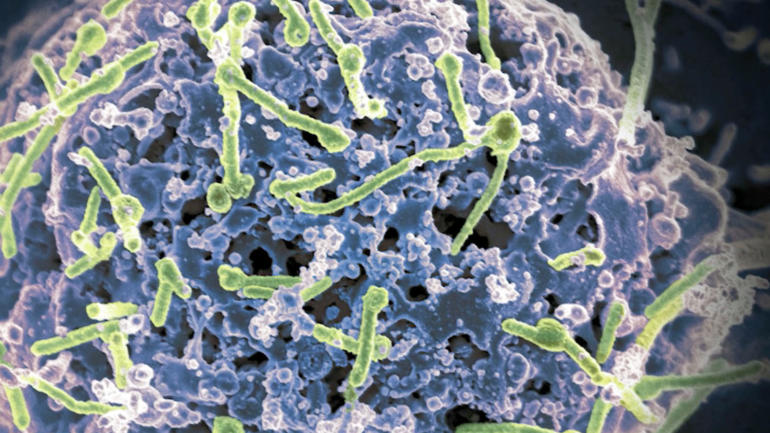A clinical trial is underway in the Democratic Republic of Congo to find a treatment for Ebola. Doctors are testing drugs designed to help the body’s immune system fight off the virus after infection. CGTN’s Daniel Ryntjes reports from Washington.
The United States National Institute of Health said a trial that began in the middle of November in the Democratic Republic of Congo was designed to discover which of up to four drugs will be effective in treating patients with Ebola.
“We started a formal clinical trial to determine if this one is better than this one is better than this one,” said Dr. Anthony Fauci from the National Institute of Allergy and Infectious Disease. “So there are three or four treatments that are being compared with each other now in a clinical trial.”
The trial is a partnership between the Congolese health authorities and international partners, including the U.S. National Institutes of Health which has developed a treatment called mAb114.
“It is a product that was derived from a patient who recovered from Ebola. So the story is that back in the 1995 outbreak in the DRC in Kickwick. There was an individual among many who actually recovered from Ebola,” Fauci said. “We brought that individual who was a Congolese person, we brought them here to the United States. We drew their blood and from their blood we derived what is called a monochromal antibody, a natural product that’s an antibody protein that the body makes to protect itself against different types of infection.”
There are two other antibody treatments developed by U.S.-based pharmaceutical companies Mapp and Regeneron, alongside an antiviral medicine called Remdesivir. All four treatments have been used by medical teams on the ground in the DRC for what’s called “compassionate use.”
“We will know when there are enough infections of people who are enrolled in the clinical trial. So the only way you know is if you get a certain number of people who are infected who get treated with this one, versus this drug versus this,” Fauci said. “Then at the end of the trial, depending on how many people in the trial you’ll know.”
But it will likely take months to develop a strong set of results given the level of instability in the outbreak area in the east of the DRC.
The study has been established so that researchers will need at least five hundred infections – and preferably more – to determine which drugs are most effective.
 CGTN America
CGTN America

